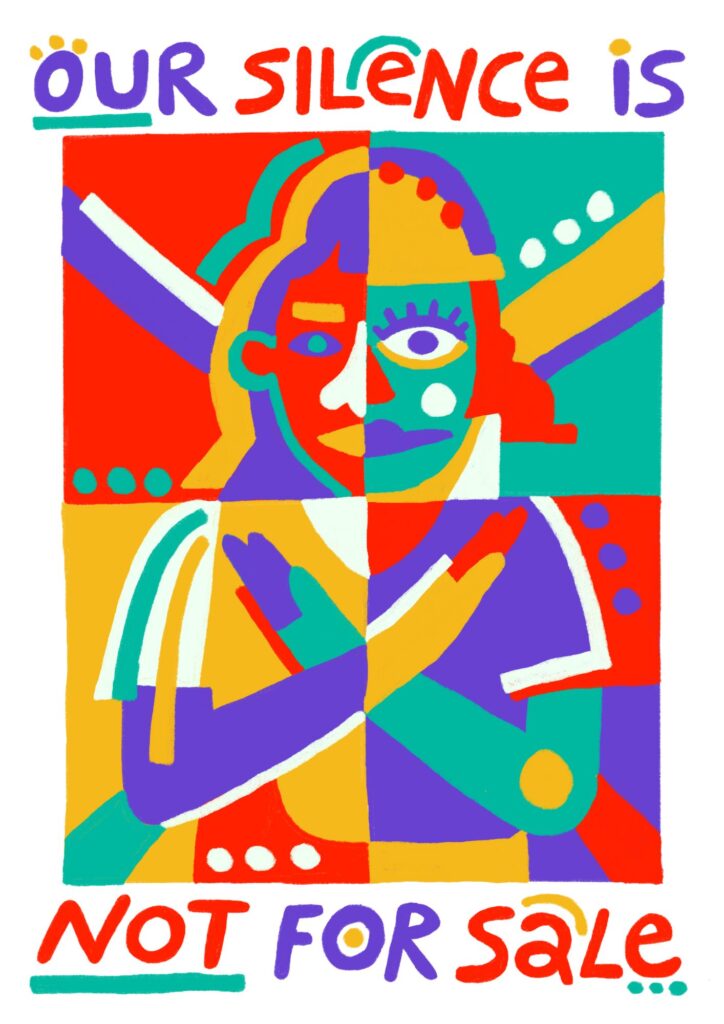NDAs are stopping women from speaking up in the workplace.
We know many women who have faced harassment or discrimination at work have made tough, courageous decisions to speak out.
We know that it is a woman’s right to speak out if she chooses, and that the overwhelming reason that women decide to speak out is to warn other women and prevent the perpetrator from abusing anyone else in the workplace.
Many women want to raise workplace safety hazards, stop harassment and discrimination, and create a safer future for others.
Some women also consider speaking out as part of their own healing process.
We know that when women make a complaint, they are often met with an NDA, where the employer or perpetrator, insists on keeping the harassment and or discrimination confidential to resolve the complaint.
This silencing tactic is used by employers and perpetrators to protect their reputations and silence women. They are unjust and have been used to hide serious workplace harassment.
When we silence women in the workplace, we stop progress. How can we improve workplaces, if we’re not talking about the issues?
Women need to be able to tell their stories, to speak up, to warn others, to demand change.
There are legal tactics and strategies used by bad faith employers and perpetrators to overwhelm and intimidate women from speaking up and pursuing their complaints. These tactics are often called strategic litigation against public participation (SLAPP). SLAPP tactics are designed to stop public participation and women from speaking up.
Some of these tactics include:
1- The use of NDAs: this could be in the form of ‘confidentiality’ or ‘non-disparagement’ clauses in a settlement.
2- Defamation: threats of unfounded defamation claims against women who have made a complaint.
3- Gag laws: perpetrators seeking suppression orders, to stop and supress the detail of what happened.
A non-disclosure agreement (NDA) is a legal obligation that requires confidentiality.
These agreements are widely used in sexual harassment and discrimination disputes. They require the woman who suffered harassment to keep their experience completely confidential or partly confidential – that is, they are not allowed to talk about what happened to them.
In circumstances where a woman who suffered harassment or discrimination does not want to stay silent, the insistence of confidentiality is a complete misuse of NDAs by employers or parties in positions of power.
Although NDAs mostly require all parties (employer, woman, and the perpetrator) to maintain confidentiality, the agreement is almost always requested by the employer and perpetrator, not the employee.
Often the NDA serves the employer and perpetrators’ interests and not the woman with experience of harassment or discrimination.
These tools and laws mainly originated in the business world to protect trade secrets and confidential information. NDA clauses protect intellectual property or trade secrets to allow a business to continue to derive profit from offering something unique. The prevalence of NDAs in template court and tribunal deeds increased from the early 90s.
With the creation and increase connectivity of people through the internet and social media, the nature of businesses has become more complex and riskier, thus why we see NDA widely used today. The landscape was very different prior to the 90s where stories could only be publicly told through more traditional and inaccessible forms of media such as print, radio and television.
This is how NDAs can operate in the context of sexual harassment. NDAs can operate to protect a secret, being the existence of a perpetrator, protect public harm to corporate reputation which in turn allows continued making of profit.
The #MeToo movement brought to light that confidentiality and NDAs were considered ‘non-negotiable’ in out-of-court settlements for sexual harassment claims, and we still see many of these cases today. Following the #MeToo movement, the Australian Human Rights Commission confirmed that in Australia sexual harassment matters are routinely settled with NDAs.
Currently there is little incentive for someone who has been sexually harassed to make a complaint. Court processes are long and taxing. Very few cases reach judgment – minimal public visibility on what a successful sexual harassment complaint outcome looks like. The misuse of NDAs exacerbates this issue.
Join us to build a movement in solidarity with women who have experienced workplace harassment and discrimination and to push for strong laws in Australia that will end the silencing of women.

You can also follow and support the local advocacy work that the Working Women’s Centre in your state or territory are doing: